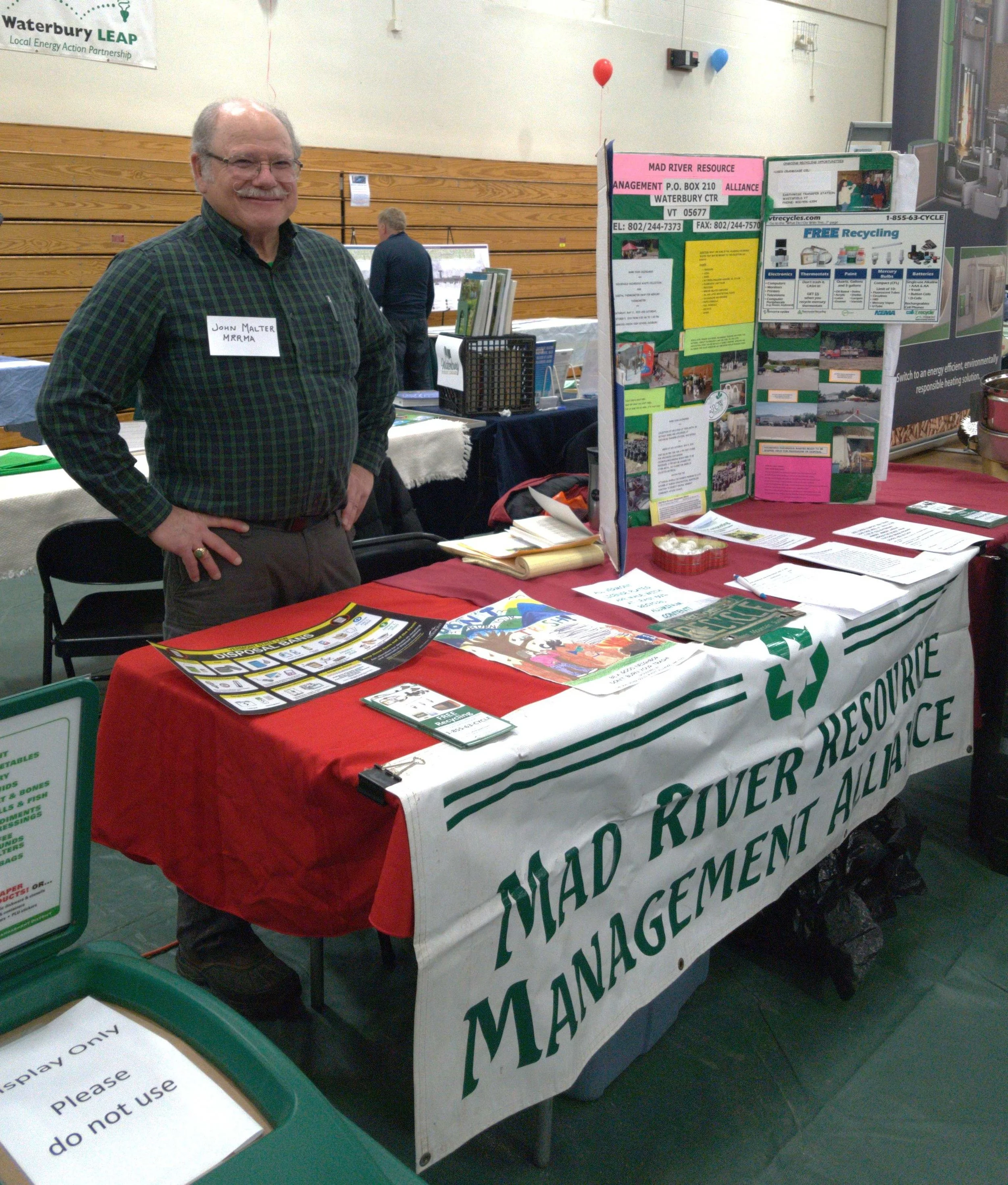A little trash-talking
June 22, 2025 | By John MalterEveryone has experience and opinions about how they deal with the excesses within their lives. As a person who has been involved with resources, garbage, recycling, composting, reuse, and the many other tropes associated with stuff most, if not all of my life, I want to offer some of my thoughts in this area and perhaps help answer questions that some of you might have in the future as nontechnically as possible.
Are you smarter than the average bear?
There are some common threads in the world of solid waste these days that draw a lot of conversations from many of our neighbors. One that I am talking about is the neighborhood bear that some folks think lives only to torment you and your trash, compost bin, beehives, bird feeders, food left in an unlocked car, random fruit trees, berry bushes and more.
A black bear ‘turns’ a composter in Waterbury Center. File photo by Kelley Hackett
They are glorious creatures and with their cubs, oh so cute. But when they start wreaking havoc on any of the above-listed targets, we are frustrated, outraged, and want to outwit them. Good luck. As with any critter, especially one coming out of a winter of hibernation, they are hungry. They are also creatures of habit and have a really good sense of smell. (Smokey the Bear, Smokey the Bear, growling and a-howling and sniffing the air).
Yes, they can sniff smoke, but in most cases that I am hearing about, they are just looking to forage an easy source of food and the more the merrier. A bear’s sense of smell is more than 2,100 times as sensitive as that of humans. So, try very hard to mask those odors as best you can (with dry leaves, sawdust, shredded paper), but if stuff still smells, Mr. Bruin is waiting in the wings to visit your buffet.
There are other ways to try to keep your food sources secure. Some are common sense: Pull in the bird feeders before the bears wake up (consult with the bears to ensure that you have the right time frame), and remember to take any food stuff out of your car (or the bear will assist and do it without consideration of your upholstery). Keep garbage cans and dumpsters in a secure site. Use an electric fence to discourage the bears from your beehives, chicken coops, compost bins and more.
If you have had a visit or two from them, then recognize that you are on their “Michelin Star” guide route. The bear may require you to change your approach to dealing with their food sources or trash. Most everyone has had some experience dealing with this, and many of you may have ideas and innovative solutions that may have worked. Share them with me and I will share them as well.
Your garage sale helps slow climate change
Did you know that you are doing your part to slow climate change by holding or participating in a garage sale?
File photo by Lisa Scagliotti
Wow, now that is a game-changer. Take stuff that you no longer need and do not throw it out – set up a big-time garage sale. Not only will you make some money or offer stuff for free, but you will also do some serious decluttering as well as extend the life of that tool or toy or article of clothing, and on and on.
Yes, you are demonstrating a local initiative to help prevent the filling of the only landfill in Vermont and the need to create a new version of the widget that you no longer need and someone else cannot live without. In your own way, you are taking out the need to extract more raw material that needs to get processed or refined and then transported to be manufactured and then shipped to a retail site so that we, the consumer, can purchase it, and then when we are done with it, throw it away.
With this type of effort, you are helping to go from a linear economy to a circular economy, and you did not even know it.
So, get out there and do your part for slowing climate change by setting up a garage sale, visiting a garage sale, going to a flea market, or purchasing from a store that promotes resale. Start advertising your garage sales as doing your part to help the environment, and your customers will be doing their part as well. A true, win, win, win. Thanks for doing good.
John Malter, Courtesy photo
John Malter is the administrator of the Mad River Resource Management Alliance, the solid waste management entity that serves the towns of Waterbury, Moretown, Fayston, Waitsfield and Warren.
Visit the alliance website at madriverrma.org for more information, or contact John with questions/comments related to waste management, such as recycling, trash, composting, household hazardous waste, etc. with an email to malterport@aol.com.



